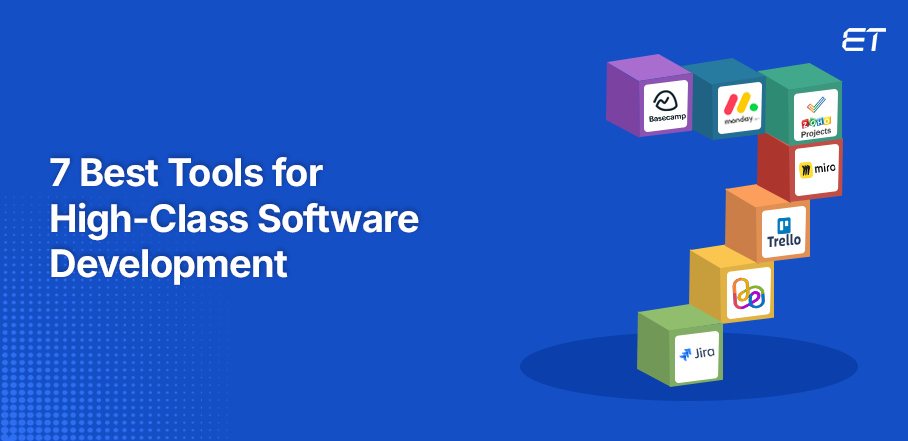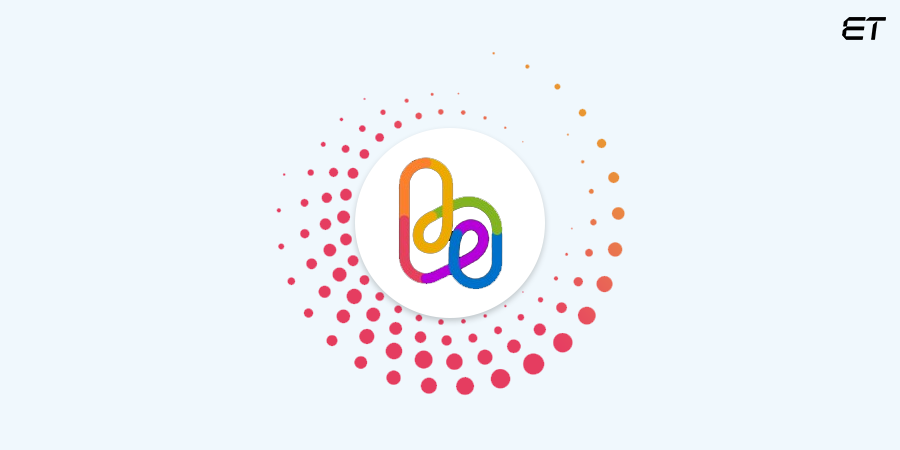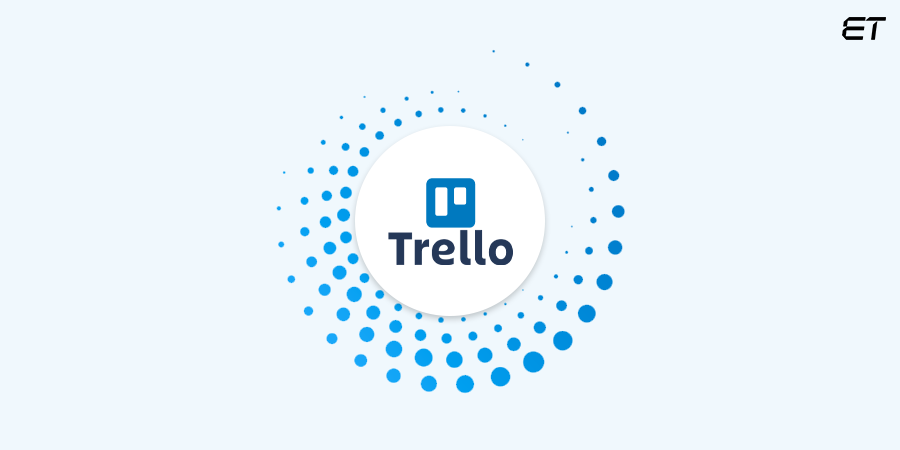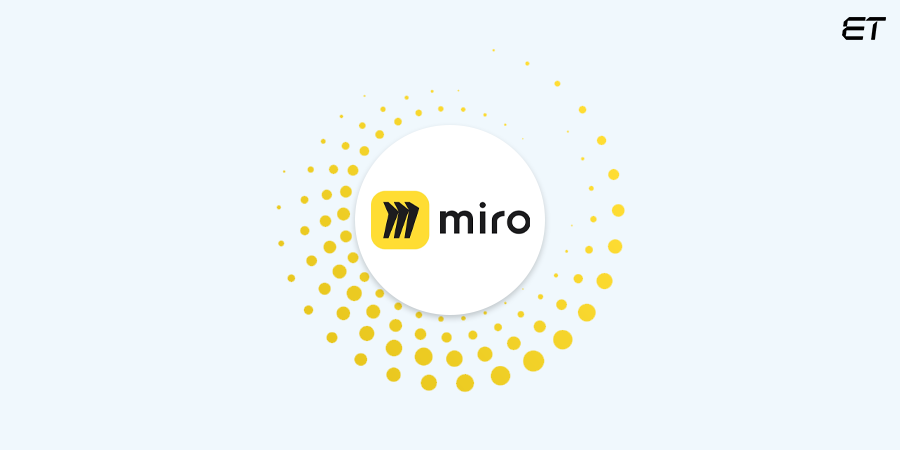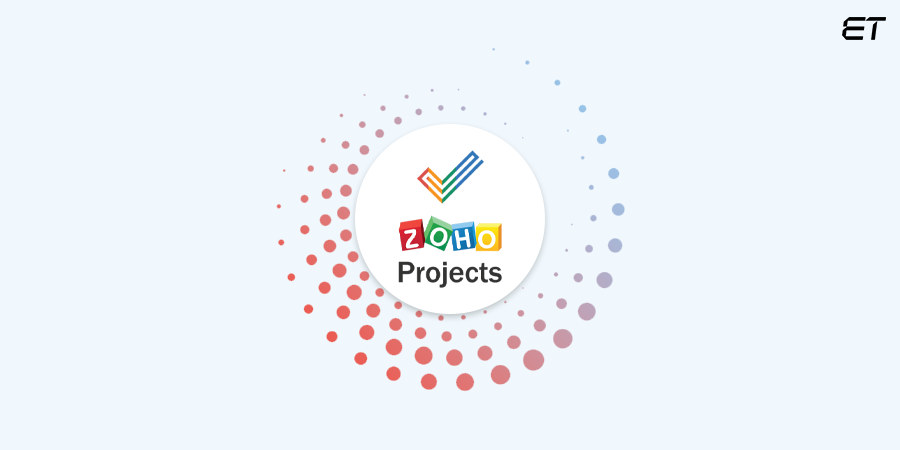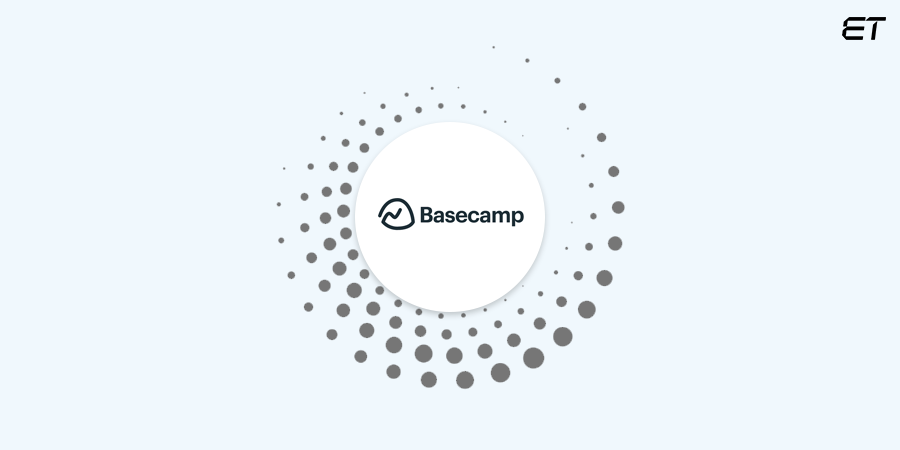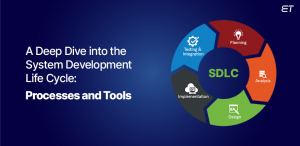Every professional wants to attain a high level of productivity. For this purpose, assets like software development project management tools become vital.
With a projected growth of 10.8%, these tools have the potential to reduce project risks and streamline workflow to a great extent. However, the main dilemma is the ‘problem of plenty.’ The market is full of project management software options, and it can be challenging to make the right choice.
This blog aims to solve this quandary. Below, you will find seven project management tools that can boost software development. So, scroll ahead and choose the best ones without any further ado.
A Quick Look at Project Management Tools: The Concept and Utility
Project management tools are digital platforms that streamline and optimize the software development lifecycle. From planning and organization to execution and evaluation, these tools provide a centralized hub for project managers to manage tasks, resources, and communication.
The Concept
Software development project management tools can serve different purposes. However, the central concept remains constant.
Here are the fundamental elements of these tools:
- Centralized Platform
- Task Management
- Resource Allocation
- Project Tracking
- Reporting and Analytics
All these components are self-explanatory. They focus on different areas to streamline an IT project and facilitate easy knowledge sharing as well.
Need to know the top software development collaboration tools? Then, read our blog for all the vital details.
The Utility
Project management tools are useful for the following reasons:
- Increased Efficiency
- Improved Collaboration
- Enhanced Organization
- Better Resource Utilization
- Risk Mitigation
- Track project progress
- Data-Driven Decision Making
Overall, software development project management tools are vital for businesses of all sizes. By understanding their core functionalities and benefits, you can select the right tool to drive project success.
7 Best Software Development Project Management Tools
In this section, you can explore seven pertinent choices of some prominent project management tools. So, just scroll ahead and pick the most suitable ones for your business. Note that the explanation of these software development project management tools is based on their utility in the IT domain.
Also, we haven’t elaborated on each tool in depth. Delving into the features and utility of each software development project management tool can lead to seven distinct blogs.
So, we included the following details:
- Basic information
- Pros and cons
- Main features
- Suitability
Feel free to comment if you want us to decode and provide in-depth information on a specific tool. Our team will create a dedicated blog as per your suggestion.
1. Jira
This project management tool is specifically designed for software development teams. Its primary purpose is to help teams plan, track, and manage their software development projects efficiently. Notably, Jira offers features that support agile methodologies like Scrum, Kanban, and more.
Pros
- Highly Customizable: Jira can be tailored to fit any team’s specific workflow and processes
- Robust Feature Set: Offers a wide range of features for issue tracking, project planning, and reporting
- Strong Integration Capabilities: Integrates seamlessly with other development tools, enhancing productivity
- Large User Community: Provides ample resources, tutorials, and support from a vast user base
Cons
- Steep Learning Curve: Can be complex to set up and master for new users
- Pricing: Can be expensive for larger teams, especially with additional add-ons
- Customization Complexity: Extensive customization options can lead to configuration challenges
- Dependency on Add-ons: Some essential features might require additional paid add-ons
Main Features
- Issue Tracking
- Project Management
- Agile Boards
- Reporting and Analytics
- Time Tracking
Best Suited For
Jira is best suited for software development teams of all sizes, from small startups to large enterprises. It benefits teams following agile methodologies and those requiring a customizable and flexible project management solution.
If you want to boost your Flutter development, some tools can prove useful.
2. Height
Some best project management tools have interesting names. Height is designed to streamline software development workflows. It emphasizes task management, collaboration, and AI assistance to augment productivity and handle multiple projects with ease.
Pros
- AI-Powered Features: Height leverages AI to automate tasks and provide intelligent suggestions
- Intuitive Interface: User-friendly design for easy navigation and task management
- Focus on Core Features: Concentrates on essential project management functionalities
- Robust Collaboration Tools: Facilitates effective teamwork and communication
Cons
- Limited Feature Set: Might lack advanced features for complex projects
- Relatively New: Compared to established tools, it has a shorter market presence
- Dependency on AI: Relies heavily on AI, which might have limitations in specific scenarios
- Pricing Tier: Might not offer flexible pricing options for all team sizes
Main Features
- Task Management
- Project Management
- Kanban Boards
- Integrations
- Collaboration Tools
Best Suited For
Height is well-suited for small to medium-sized software development teams prioritizing simplicity, collaboration, and AI-driven automation. It is a good choice for teams looking for a modern, intuitive project management solution.
3. Trello
Trello is a visual project management tool that helps teams organize and prioritize tasks. It is highly used for managing projects in a simple and flexible way.
Pros
- Simplicity: Its intuitive interface makes it easy to learn and use for both technical and non-technical users
- Flexibility: Trello’s board-based system allows for customization to fit various project management methodologies
- Visual appeal: The use of cards and lists provides a clear visual representation of tasks and progress
- Collaboration: Effective tools for team collaboration, including comments, attachments, and due dates
Cons
- Limited reporting: Offers basic reporting functionalities, which might be insufficient for complex projects
- Scalability: While suitable for small teams, more prominent organizations might find it challenging to manage complex projects
- Dependency on power-ups: To add advanced features, users often rely on power-ups, which can increase costs
- Lack of time tracking: Built-in time tracking features are limited, requiring integrations for comprehensive time management
Main Features
- Boards
- Lists
- Cards
- Labels
- Checklists
Best Suited For
Trello is best suited for small teams and projects that require a simple and visual way to manage tasks. Moreover, it is ideal for teams who prefer a flexible and collaborative approach to project management.
Confused in choosing the best tool for cloud migration? Don’t worry.
4. Miro
Certain software development project management tools are highly suitable for visual collaboration. Miro is one such platform that enables teams to work together on a shared online whiteboard. It is widely used for agile methodologies, brainstorming, and project planning.
Pros
- Highly visual: Offers a flexible canvas for brainstorming, mapping, and visualizing complex information
- Real-time collaboration: Multiple users can work together simultaneously on the same board
- Rich features: Includes a variety of tools for creating diagrams, mind maps, and sticky notes
- Integration capabilities: Connects with other tools to enhance workflow
Cons
- Steeper learning curve: Compared to simpler tools, it might take time to master all features
- Focus on collaboration: While strong in collaboration, dedicated project management features might be limited
- Pricing: Higher-tier plans can be expensive for larger teams
- Potential for clutter: Overuse of sticky notes and elements can lead to a cluttered board
Main Features
- Whiteboard
- Sticky Notes
- Shapes
- Connectors
- Video Conferencing
Best Suited For
Notably, Miro is a great option for teams that value visual collaboration, brainstorming, and agile methodologies. It is also a good project management platform for software developers and other professionals working in a systematic setup.
5. Zoho Projects
This name is quite familiar in the IT domain. Zoho Projects is a comprehensive project management tool designed to help teams plan, track, and manage their projects. It offers a range of features for task management, collaboration, and reporting. Project management platforms like Zoho Projects are popular due to its strengths.
Pros
- Comprehensive feature set: Covers various project management aspects, from planning to execution
- Affordability: Offers competitive pricing plans
- Part of Zoho ecosystem: Integrates seamlessly with other Zoho applications
- Customizable workflows: Allows tailoring the tool to specific project needs
Cons
- Steeper learning curve: Compared to simpler tools, it might require more time to master
- Interface complexity: The UI can be overwhelming for users new to project management tools
- Feature bloat: Offers a wide range of features, which might lead to unused functionalities
- Limited third-party integrations: Compared to other tools, it might have fewer integration options
Main Features
- Task Management
- Project Planning
- Time Tracking
- Bug Tracking
- Resource Management
- Reporting
Best Suited For
Zoho Projects is suitable for businesses that utilize the Zoho ecosystem and require an all-in-one project management solution. It is helpful for teams managing multiple complex projects with varying levels of complexity.
6. Monday
If you are looking for a versatile work management platform, Monday.com can be the perfect choice. You can use it for various project management methodologies. It offers a flexible structure to accommodate different team workflows.
Pros
- Highly customizable: Allows tailoring the platform to specific team needs and processes
- Strong visual interface: Offers a user-friendly and visually appealing workspace
- Comprehensive feature set: Covers a wide range of project management functionalities
- Integration capabilities: Connects with numerous third-party applications
Cons
- Can be complex: The platform’s flexibility can lead to a steeper learning curve for new users
- Pricing: Higher-tier plans might be costly for smaller teams
- Potential for feature overload: The abundance of features might overwhelm some users
- Reliance on templates: Effective use often depends on creating or finding suitable templates
Main Features
- Workflows
- Boards
- Gantt Charts
- Time Tracking
- Automation
Best Suited For
Monday is suitable for businesses seeking a flexible and customizable work management solution. It is well-suited for companies that require a central hub for various project-related activities.
Looking for a list of best AWS DevOps tools?
7. Basecamp
Last on our software development project management tools list is Basecamp. This tool is a project management and team collaboration platform designed to simplify workflows and improve communication within teams.
Pros
- Simplicity: Offers a clean, uncluttered interface for easy navigation
- Focus on communication: Prioritizes open communication and information sharing
- Reduced email: Aims to minimize email clutter by centralizing communication
- Affordability: Offers competitive pricing plans
Cons
- Limited features: Might lack advanced project management functionalities for complex projects
- Less suitable for agile methodologies: Not as well-suited for teams following agile frameworks
- Limited integrations: Fewer third-party integrations compared to other tools
- No time tracking: Built-in time tracking features are absent
Main Features
- To-do Lists
- Messaging
- Documents & Files
- Scheduling
- Check-ins
Best Suited For
Overall, Basecamp is helpful for small to medium-sized teams that prioritize simplicity, communication, and a clutter-free workspace. It is ideal for projects with minimal complexity, adaptive software development approach, and a focus on collaboration.
Need help connecting with professionals who use state-of-the-art project management tools?
Software Development Project Management Tools: A Summary
| Tool | Key Features and Considerations |
| Jira | Feature-rich for agile, customizable, strong integrations, steep learning curve, expensive (add-ons) |
| Height | AI-powered, intuitive, focus on core features, strong collaboration, limited features, relatively new |
| Trello | Simple and visual, flexible, strong collaboration, limited reporting, scalability issues |
| Miro | Visual collaboration, real-time collaboration, integrations, steeper learning curve, focus on collaboration |
| Zoho Projects | Comprehensive, affordable, Zoho ecosystem integration, customizable workflows, steeper learning curve, interface complexity |
| Monday | Highly customizable, strong visual interface, integrations, can be complex, expensive (higher tiers) |
| Basecamp | Simple, communication-focused, affordability, limited features, less suitable for agile |
Endnotes
For a business, choosing suitable software development project management tools can prove to be a crucial decision. The right tool can improve your efficiency and streamline workflow profoundly.
It is vital to choose a project management tool that fits your budget and complements your requirements. Never choose a tool with features you will barely use. On the contrary, if you want to expand, choose tools with scalable features.
Partnering with an IT vendor with professionals adept in using such tools can generate high ROI. So, choose your software development partner wisely and hire dedicated developers who are proficient in using such project management tools.
Frequently Asked Questions
1. What are the key factors to consider when choosing a project management tool for software development?
You should consider the team size, project complexity, budget, preferences, and required integration. It is vital to match the tool’s capabilities to your specific needs.
2. How can I choose between Agile-focused tools like Jira and general project management tools like Monday.com?
If your team strictly follows Agile methodologies, Jira’s specialized features might be ideal. Monday.com’s flexibility can be beneficial for hybrid or less structured approaches. So, always conduct thorough research before choosing a project management tool.
3. What are the benefits of using a visual project management tool like Trello or Miro?
Visual tools enhance communication, increase efficiency, foster collaboration, and aid problem-solving by representing tasks and workflows visually.
4. How can I successfully implement a project management tool in my team?
You can communicate the tool’s benefits, provide training, and start with a pilot project. It is essential to assess and adjust continuously and secure leadership support for successful implementation.

Project Delivery Head
Nitin has over 20 years of IT experience and 3+ years of experience in on-site work in Arizona, USA. In all these years, he has held the positions of delivery manager, module lead, and senior consultant. Expert in advocating product life cycle phases while using self-motivational skills and problem-solving abilities. He works on the principle of “Always Deliver More than Expected.”
